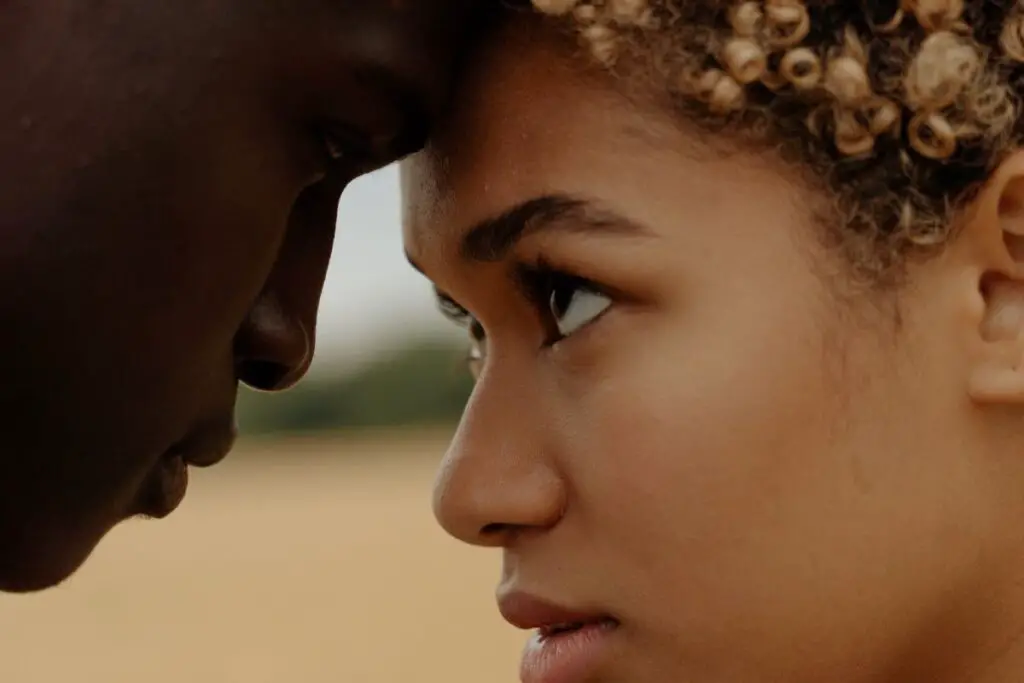Love Without Limits: Navigating Romance and Dating with Autism
Autism and relationships of the romantic kind can be an exciting and sometimes scary experience. Romantic feelings, that you may have never experienced before can be overwhelming for a neurotypical person, but when you are on the spectrum, dating with autism can be downright exhausting.
 A key factor relating to autism and relationships is managing the emotions and learning how to act on these feelings properly. Learning how to control what may be overwhelming emotions is an important part of being an adult, especially as it pertains to dating with autism.
A key factor relating to autism and relationships is managing the emotions and learning how to act on these feelings properly. Learning how to control what may be overwhelming emotions is an important part of being an adult, especially as it pertains to dating with autism.
While finding your love language and being in control of romantic feelings can be a challenge, it’s crucial for neurodiverse individuals to learn how to navigate this aspect of being human because it will make falling in love, romance, relationships, and life in general easier.
Developing feelings for someone for the first time can be both exciting and scary, no matter who you are. But for people on the autism spectrum, the mix of emotions and social cues involved with romance can feel especially complex.
The emotional and sensory processing differences that come with neurodiversity can make it challenging to navigate romance, leading to autism and relationship problems. However, with some insight and planning, people with autism can successfully manage falling in love for the first time.
Here’s how to find your love language when you have autism.
Autism and Relationships: Understanding Your Emotions
if you are considering dating when you have autism, you may experience emotions very intensely or struggle to identify what you’re feeling at all. The flood of new feelings that come with a crush or attraction as it relates to autism and relationships can be overwhelming.
Try to tune into your body and take note of any physical signs of nerves, excitement, stress or giddiness when you start spending time with someone new. For example, you may notice your heart races, your face gets warm, or you feel tense. Put words to what you observe and write it down if needed. Verbalizing your emotions, even just to yourself, can help you identify and process new feelings.
Figuring out if your feelings are signs of romantic attachment or platonic appreciation can also be tricky when you are dating with autism. Reflect on whether you want physical closeness with the person, imagine future activities together, get jealous about them spending time with others, or just enjoy talking to them as a friend.
Journaling about interactions and reactions can uncover patterns about how this person is different from your other relationships. If confusion persists, being honest with them about questioning your feelings may help.
Read more:
- Autism Masking and Code Switching: How to Redefine Acceptance
- Masked Symptoms of Autism in Adults You Need to Recognize
- Self-Identity: The Ultimate Guide to Finding Your True Self
Dating with Autism: Proceeding Slowly to Avoid Autism and Relationship Problems
Dating when you have autism can involve a lot of vulnerability and many unspoken social rules most people learn intuitively; but these may need to be studied more consciously when someone is on the spectrum. Rather than rushing into romantic talk or activities because of excitement or pressure, take things slow so you can be thoughtful about each step.
Pace out getting to know someone new over weeks or months if needed. Make sure conversations happen at a speed you can process and any activities allow you to regulate emotions/senses. For example, choose quieter restaurants or activities without crowds if that helps manage stimulation.
If you find yourself feeling overwhelmed by new dating dynamics when it comes to dating with autism, take a break to regroup. Explain to your partner that you sometimes need downtime to reset after socializing.
Schedule check-ins about the relationship pace and what is or isn’t working. Outline what specific steps you want to take next, like introducing them to friends after an agreed-to number of dates, to prevent assumptions. Moving the relationship timeline along should feel good for both people.
Read more about:
- Crowds Phobia and Autism: How to Tame Anxiety Overload
- Anxiety and Autism: 5 Powerful Strategies to Conquer Emotions
Dating with Autism: Communicating Openly
Clear communication is key to any healthy relationship, but especially critical when you are dating when you haveautism. Be upfront with a potential partner early on about being on the spectrum and how it impacts you.
For example, explain what communication styles do or don’t work well for you. You may want to request avoiding vague hints and expressing affection indirectly, which can lead to confusion. Instead, being direct about plans, feelings, and addressing problems works better for many autistic folks.
Setting these expectations early can prevent hurt feelings down the line. Encourage your partner to ask clarifying questions if something you say or do confuses them. Don’t be afraid to do the same with them. You should both feel comfortable asking for extra clarity.
Autism involves differences in social perception, so misunderstandings are likely at times; but talking them through calmly can bring you closer. Also, if conversations start to feel one-sided, refocus discussion to learn about your partner’s perspectives too. Relationships are give-and-take, so be sure you aren’t dominating every talk about just your interests.
If you are autistic, then you probably know that individuals with ASD tend to have a hyper-focus or even obsession about certain topics and subjects. But at the same time, stay keenly aware that just because you love space, for example, doesn’t mean that your partner wants to hear about your thoughts about it all the time. Finding balance is critical if you are considering dating when you have autism.
Read more about:
- Autism Social Skills: Inferencing and Body Language Hurdles to Overcome
- Knocking Down the Stigma to Autism Obsession
- 8 Popular Ways to Manage and Master Autistic Social Awkwardness
Autism and Relationships: How to Find Your Love Language That Works
 In addition to communication needs, autism often comes with sensory processing differences that impact relationships too. For example, certain textures, smells, noises, or even eye contact may be painful or uncomfortable for you.
In addition to communication needs, autism often comes with sensory processing differences that impact relationships too. For example, certain textures, smells, noises, or even eye contact may be painful or uncomfortable for you.
Have candid conversations about your sensory needs early while dating. Maybe you need to avoid crowded concert venues or can only sustain eye contact for so long. If these needs aren’t stated outright, a partner may take reactions personally.
Be prepared to offer compromises too as you try how to find your love language. For example, if you can’t stand holding hands, agree to linking arms when walking instead. Or while you may not be able to snuggle in bed all night, dedicate 15 minutes of pillow talk.
Adjustments around sensory needs take some creativity and flexibility on both people’s part. When challenges arise, focus on problem-solving together rather than assigning blame.
Read more about:
- 10 Proven Techniques for Managing Autism and Sensory Issues
- What I Wish People Knew About Autism Adult Symptoms
- Autism in Women Stereotypes: The Real Truth Revealed!
Autism and Relationships: Seeking Support
Falling in love often involves some stumbles along the way, even without autism in the mix. Everyone struggles at times to understand their own emotions, communicate them effectively, or manage expectations. Have compassion for yourself and also your partner throughout this journey. You’re both learning!
When you do hit roadblocks, lean on trusted friends who know you well or a therapist to help work through problems. Getting insight from someone who understands autism but isn’t emotionally invested in the relationship can bring useful perspective.
Joining an autism social skills group can also help you navigate interpersonal challenges. Connecting with others who share similar struggles can ease feelings of isolation when dating dilemmas arise.
Within group sessions, you can role play approaching tough talks with your partner or get feedback on confusing situations. Support groups also offer great opportunities to expand your social circle, which is valuable for emotional well-being in general.
Surrounding yourself with community can improve all relationships and help with finding your love language. But avoid over-immersion in advise and in getting addicted to social media for help. Trust me, you’ll eventually be able to navigate autism and relationships successfully with time and experience.
Read more:
- Dangers of Social Media Addiction: How to Leave the Screens and Face the Real World
- Break Free From These 7 Unhealthy Coping Mechanisms
Autism and Relationship Problems: Handling Jealousy or Rejection
Some emotions that often accompany romantic interests are jealousy and insecurity. You may struggle when your partner spends time with other people or you feel rejected if they can’t see you as often as you’d like.
Remember, their need for personal time or outside friendships are not intentional slights against you. These are healthy dynamics for most non-autistic people. Explain what reassurance would help when these situations bring up jealous feelings, like receiving a quick text saying they’re thinking of you even when busy. Be careful not to demand too much contact or restriction though, as that can push partners away.
Also prepare for the reality that this first love may not last forever. The person you like so passionately now still might not end up being the right match. If they don’t reciprocate feelings or break things off down the road, allow yourself to grieve.
Rejection always hurts. But try framing this as gaining experience that will help you build an even stronger connection next time. Reflect on what worked or didn’t work to guide future relationship efforts. With maturity comes wisdom when dating when you have autism!
Read more about:
- Making A Connection: The Forgotten Joy of Finding Third Places
- Flat Affect Autism and How to Support Emotional Expression
Dating When You Have Autism: Managing Family Reactions
In addition to navigating your own emotions, you may need to manage reactions from family members when you start dating someone new. Parents, siblings or extended relatives may have concerns or doubts about your ability to manage romance.
Online autism forums show many parents worrying their child will be easily taken advantage of or unable to maintain a relationship long-term. While these fears often come from love, their protectiveness can feel stifling.
Have an open discussion with family about your goals for expanding social connections, including dating. Share resources to educate them that adults with autism can pursue healthy romantic relationships just like anyone else. Highlight your strengths that will allow you to be a caring partner, like loyalty, honesty and consistency.
Building their confidence in you over time by demonstrating maturity can help ease family reservations about you dating.
Once in a relationship, consider how much information you want to share upfront with family, especially if you anticipate pushback. Perhaps introduce a new boyfriend or girlfriend casually at first without labels, then have deeper talks once your relatives get to know them better.
Sharing updates along the way about positive progress can further abate doubts. If conflicts do arise, remind loved ones that they raised you to make smart decisions. Reassure them you will lean on your support system if any trouble emerges. With patience and trust, families can get there.
Read more about:
- Discover the Secret Language of Autism Sibling Love
- Autism Family Support: 5 Ways for A Happy Household
Autism and Relationships: Embracing Vulnerability And Complex Emotions
 Allowing yourself to fall in love requires making peace with vulnerability. That means taking risks that emotional or sensory overwhelm may emerge and having limited ability to control outcomes.
Allowing yourself to fall in love requires making peace with vulnerability. That means taking risks that emotional or sensory overwhelm may emerge and having limited ability to control outcomes.
Attempts to protect yourself by staying closed off or detached will backfire though. True intimacy demands openness and honesty.
Be willing to move beyond just facts by sharing dreams, fears, imperfections and affection verbally.
Let your guard down physically too by trying new forms of touch, even when unsure. Suggest guiding a partners hand to your face, back or hands to model desired pressure and motion for stroking. Or place their fingertips on your shoulders to signify wanting a massage.
Use consent cues to expand physical connection at your own pace. Move slowly into vulnerability by giving access little by little rather than all walls down immediately. As confidence builds, keep extending trust while checking in on comfort levels for both parties.
When in the midst of new relationship energy, people often overlook self care while obsessed with their partner. Fight this urge by scheduling mandatory me-time to prevent burnout so you can successfully navigate how to find your love language.
Sustain routines around sleep, healthy eating and exercise. Make time for special interests and non-romantic friends too so your entire identity doesn’t get subsumed. If your new partner makes you feel guilty for attending to other areas of life, reconsider compatibility. You want someone who celebrates all facets of who you are.
Additionally, be vigilant about noticing sensory or emotional overload signals. Excuse yourself from dates politely when reaching capacity for social stimulation. Let partners know this is simply part of how you maintain wellness, not a reflection on them.
Model self care rather than sacrificing needs, otherwise resentment builds. No relationship can be healthy long-term without honoring your own sustainability first and foremost.
With adequate me-time plus clear boundaries, falling in love and keeping wellness in balance is absolutely possible.
Read more about:
- The Surprising Link: Autism Traits in Adults and Physical Fitness
- Autism and Sleep: Top 4 Reasons for Sleepless Nights
- Autism and Poor Hygiene: The Smelly Truth to Overcome
Finding Your Love Language: Embracing Progress over Perfection
While finding romance can require some additional consideration when you’re on the spectrum, a willingness to understand yourself combined with courage to be vulnerable can lead to meaningful connections. People with autism deserve loving relationships just like anyone else, although perfection is unrealistic.
Not every date will go smoothly and miscommunications will happen, especially initially. This is normal! See small improvements in emotional awareness or social flexibility as progress to celebrate.
By taking the process step-by-step rather than demanding flawlessness, you can successfully handle falling in love for the first time.
Approach setbacks with patience and an openness to learn. With this mentality when dating when you have autism, romantic fulfillment is possible.
Read more about:
- The Importance of Gratitude Attitude and How It Makes Life More Beautiful
- Autism and Independence: 7 Skills That Empower Individuals to Thrive
- Choosing Happy: How Self-Love Can Outshine Love and Joy Coupling
If you liked this article, you might enjoy some of the ones I have written about understanding typical autistic behaviors.
Common Autistic Behaviors
There are many behaviors associated with having autism. Keep in mind that everyone presents differently, which is why it is caused a spectrum disorder. However, there are common autism behaviors. Learn more about them.
- Eye Contact Avoidance: 8 Best Ways to See Eye to Eye
- Autism and Eye Rolling: Why It’s Odd, But Perfectly Okay
- 10 Proven Techniques for Managing Autism and Sensory Issues
- Understanding Neurodiversity: Uprising of the Neurodivergent
- Autism and ADHD: Making Sense of the Overlap
- Autism Masking & Code Switching: How to Redefine Acceptance
- Autistic Stimming Behaviors: Why We Do and How It’s Important
- OCD and Autism: Could You Have One Condition or Both?
- Autism in Sports: Hyper-Focus Can Be A Commanding Competitive Advantage
- Alexithymia Symptoms: Is Emotional Blindness A Thing?
- Over Socializing and Autism: How Being Overly Friendly is a Challenge